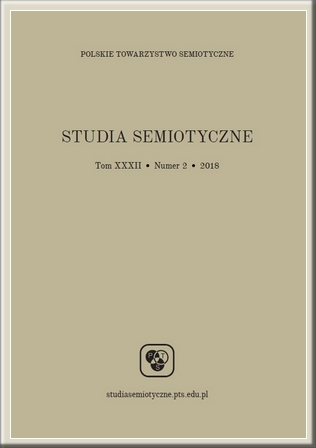Abstract
DOI: http://doi.org/10.26333/sts.xxxii2.05
STANISŁAW KRAJEWSKI
ON SUPRASUBJECTIVE EXISTENCE IN MATHEMATICS
SU M M A R Y: The professional mathematician is a Platonist with regard to the existence of mathematical entities, but, if pressed to tell what kind of existence they have, he hides behind a formalist approach. In order to take both attitudes into account in a possibly serious way, the concept of suprasubjective existence is proposed. It involves intersubjective existence, plus a stress on objectivity devoid of actual objects. The idea is illustrated, following William Byers, by the phenomenon of the rainbow: it is not an object but can be said to possess a subjective objectivity.
Stanisław Krajewski
University of Warsaw
Institute of Philosophy
E-mail: stankrajewski@uw.edu.pl
ORCID: 0000-0002-1142-8112
References
Byers, W. (2007). How Mathematicians Think: Using Ambiguity, Contradiction, and Paradox to Create Mathematics. Princeton and Oxford: Princeton University Press.
Byers, W. (2015). Deep Thinking: What Mathematics Can Teach Us About the Mind. Singapore: World Scientific Publishing.
Byers, W. (2017). Can You Say What Mathematics Is? In: B. Sriraman (Ed.), Humanizing Mathematics and its Philosophy. Essays Celebrating the 90th Birthday of Reuben Hersh (pp. 45–60). Cham: Birkhäuser, Springer International Publishing.
Cohen, P. J. (1971). Comments of the Foundations of Set Theory. In: D. Scott (Ed.), Axiomatic Set Theory (pp. 9–15). Providence: American Mathematical Society
Corfield, D. (2006). Towards a Philosophy of Real Mathematics. Cambridge University Press.
Davis, P. J., Hersh R. (1981). The Mathematical Experience. Boston, Basel, Berlin: Birkhäuser.
Davis, P. J., Hersh R., Marchisotto E. A. (1995). The Mathematical Experience. Boston, Basel, Berlin: Birkhäuser.
Friend, M. (2014). Pluralism in Mathematics: A New Position in Philosophy of Mathematics. Dordrecht: Springer.
Glas, E. (2005). Mathematics as Objective Knowledge and as Human Practice. In: R. Hersh (Ed.), 18 Unconventional Essays on the Nature of Mathematics (pp. 289–303). New York: Springer.
Gödel, K. (1944/1990). Russell’s Mathematical Logic. In: S. Feferman, J. Dawson, S. Kleene, G. Moore, R. Solovay, J. van Heijenoort (Eds.), Collected Works II, Publications 1938–1974 (pp. 119–143). Oxford: Oxford University Press. (Reprinted from The Philosophy of Bertrand Russell, p. 123–153, by P. Schilpp (Ed.), Evanston: Northwestern University).
Gödel, K. (1951/1995). Some Basic Theorems on the Foundations of Mathematics and Their Implications. In: S. Feferman, J. Dawson, W. Goldfarb, Ch. Parsons, R. Solovay (Eds.), Collected Works III, Unpublished Essays and Lectures (pp. 304–323). Oxford: Oxford University Press.
Gödel, K. (1964/1990). What is Cantor’s Continuum Problem? In: S. Feferman, J. Dawson, S. Kleene, G. Moore, R. Solovay, J. van Heijenoort (Eds.), Collected Works II, Publications 1938–1974 (pp. 254–270). Oxford: Oxford University Press.
Herbert, N. (1985). Quantum Reality: Beyond the New Physics. New York: Anchor Books, Double Day.
Hersh, R. (1979). Some Proposals for Reviving the Philosophy of Mathematics. Advances in Mathematics, 31(1), 31–50.
Hersh, R., (1997). What Is Mathematics, Really? Oxford: Oxford University Press.
Hersh, R. (2017a). Review of How Humans Learn to Think Mathematically: Exploring the Three Worlds of Mathematics. In: B. Sriraman (Ed.), Humanizing Mathematics and its Philosophy. Essays Celebrating the 90th Birthday of Reuben Hersh (pp. 39–44). Cham: Birkhäuser, Springer International Publishing.
Hersh, R. (2017b). On the Nature of Mathematical Entities. In: B. Sriraman (Ed.), Humanizing Mathematics and its Philosophy. Essays Celebrating the 90th Birthday of Reuben Hersh (pp. 361–363). Cham: Birkhäuser, Springer International Publishing.
Król, Z. (2015). Platonism and the Development of Mathematics. Infinity and Geometry. Warszawa: IFiS PAN.
Lakoff, G., Johnson M. (1980). The Metaphors We Live By. Chicago: University of Chicago Press.
Robinson, A. (1965). Formalism ’64. In: Y. Bar Hillel (Ed.), Logic, Methodology and Philosophy of Science (pp. 228–246). Amsterdam: North Holland.
Sriraman, B. (Ed.) (2017), Humanizing Mathematics and its Philosophy. Essays Celebrating the 90th Birthday of Reuben Hersh. Cham: Birkhäuser, Springer International Publishing.
Wang, H. (1996). A Logical Journey. From Gödel to Philosophy. Cambridge, MA: MIT Press.
White, L. (1947/2006). The Locus of Mathematical Reality: An Anthropological Footnote. In: R. Hersh (Ed.), 18 Unconventional Essays on the Nature of Mathematics (pp. 304–319). New York: Springer. (Reprinted from Philosophy of Science, 14(4), 289–303).
Wilder, R. L. (1981). Mathematics as a Cultural System. Oxford: Pergamon Press.


